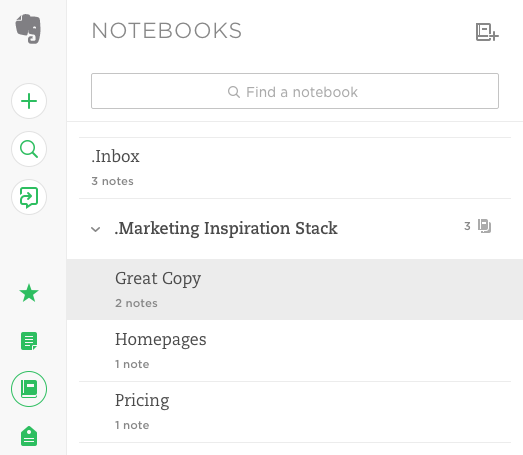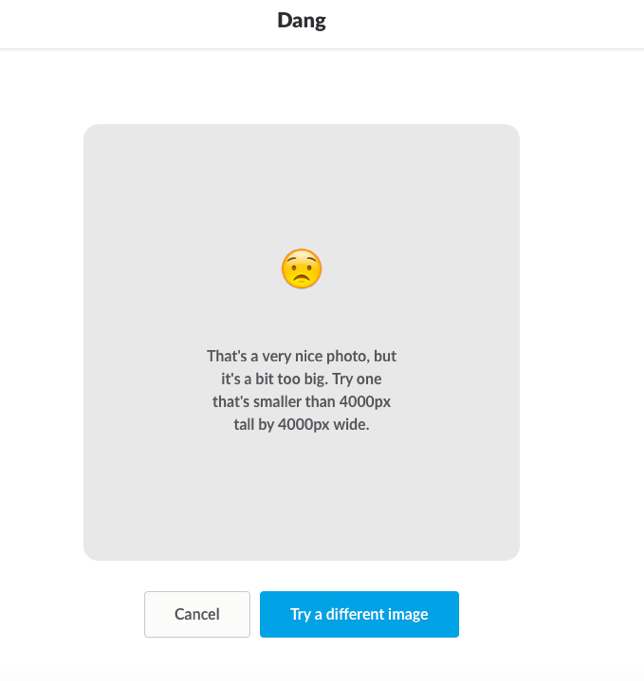
“Do less.”
That’s the main piece of advice Jason Segel’s character gets in the movie Forgetting Sarah Marshall when he’s on the beach learning how to surf for the first time.
The “do less” advice that Segel gets goes something like this:
In order to stand up on a surfboard and ride a wave, you can’t try to stand up on a surfboard and a ride a wave.
Deep stuff, right?
Well, when I started writing this article, I had to mention that scene — even though it’s a little ridiculous (and hilarious ) — because it feels so similar to the process of coming up with good ideas.
As author Steven Pressfield says in his book Nobody Wants to Read Your Sh*t:
“When you try too hard, you have bad ideas. When you work mechanically, you have bad ideas. When you follow formula, you have bad ideas. When you’re desperate or panicky, you have bad ideas.”
In other words, you need to “do less.”
But in today’s world, ideas are everything. There’s so much noise in every marketing channel, and there are hundreds of products that do the same things — so you need to generate (and then execute on) new ideas in order to survive as a business.
But what do you do if you’re like me and you’ve always struggled to come up with new ideas? You can’t really just sit around and practice the fine art of “do less.”
Below is a list of five things — let’s call them routines — that you can follow that will help you consistently start to come up with better ideas.
These are some of the routines that have helped me out big time, and I’m hoping that there’s at least one in here that will work for you as well.
OK, let’s get to it.
How To Come Up With Better Ideas
1) Read more. For the longest time, I didn’t enjoy reading. Maybe because it was reading that was assigned and required; maybe it was just because I didn’t understand how reading Jane Eyre would ever help me down the road in my career. Regardless, I was always the guy in the hallway furiously flipping through a book three minutes before class to find a line or two to highlight, just in case I got called on. I never read.
But now, with startups, marketing, and growing a business, I’ve found topics that I truly enjoy reading about. And I’ve also noticed how reading can actually make an impact on my work and my career.
Last year I made a commitment to read 10-20 minutes every day, no matter what, and ever since then, I’ve noticed a huge difference in the quality of work I’m able to create. There is a direct relationship between how much and I’m reading and the ideas I’m able to come up with.
And it doesn’t have to be books (although books are great because of the amount of effort someone had to put in to create it). The key lesson here is really just about the amount of things you are consuming — from books to blog posts to podcasts. The more information you are consuming, the better.
Here’s why reading and consuming information is so important to your ability to generate new ideas: you are stuffing your mind with ideas that will come back to you later.
Or as David Ogilvy put it:
“Big ideas come from the unconscious. This is true in art, in science, and in advertising. But your unconscious has to be well informed, or your idea will be irrelevant. Stuff your conscious mind with information, then unhook your rational thought process. You can help this process by going for a long walk, or taking a hot bath, or drinking half a pint of claret. Suddenly, if the telephone line from your unconscious is open, a big idea wells up within you.”
2) Make time to unplug. Ogilvy just mentioned it above — and yes, there’s nothing more Mad Men than David Ogilvy telling you to drink half a pint of claret in order to come up with better ideas — but the point is this: you need to make time to unplug.
This is the reason why the best ideas hit you in the shower, or in the middle of a workout — because you aren’t actively thinking about work.
Now, this doesn’t mean that every time you finish reading a blog post or a chapter in a book you immediately need to go off the grid for 30 minutes, but unplugging can be super helpful when you’re working on something.
In his book The Boron Letters, legendary adman and copywriter Gary Halbert gives advice to his son about creating ads that sell. After Halbert walks through the steps about how to conduct research when creating a new campaign, here’s the advice he gives his son:
“Now, at this point, what you need to do is stop working on this project. That’s right. Just let it go. Put it right out of your mind. Just go on about your other business for a day or two.”
And that’s because Halbert knew the same secret as Ogilvy — the importance of unplugging and letting your subconscious takeover.
By the way, this was an article I wanted to write for a few weeks now but couldn’t get the story right and figure out the points I wanted to make. I was stuck, so I let it go — and then boom. It hit me on the 6th hole of a golf course in Barre, Vermont, and I wrote about 90% of this right there on my phone. Funny how that works.
3) Set aside time to write down new ideas every day. One of the best ways to start coming up with better ideas is to practice coming up with ideas.
It seems so obvious right? But when was the last time you just sat down with a piece of paper and a pen — no computer, no phone — and just started jotting down ideas?
James Altucher calls this building your idea muscle. Just like you need to workout to get in shape, you need to work your idea muscle in order to get better at coming up with ideas.
Here’s Altucher:
“If you were sick in bed for ten days and then tried to walk you wouldn’t be able to. How come? Because your leg muscles have atrophied. Just two weeks of non-use and you might need six months of therapy to walk normally again. We’re in a world that is running 1000 miles per hour. If you let your leg muscles atrophy you will get left behind. The idea muscles in your mind are the EXACT same way. They atrophy in about ten days of non-use.”
And one of the best ways to work on your idea muscle it to set aside a few minutes every day to jot down ideas. It could be 10, it could be 20 — it doesn’t matter. The point is just to throw a bunch of things out there and work on generating new ideas. This way, when the time is right and you need a new idea, you’ll have the reps and sets under your belt to be able to pull it off and come up with something.
4) Start keeping a swipe file. You know all those great examples of homepages, pricing pages, and emails you like that you always forward to your team and share on Slack?
It’s time to start putting them to use by saving them all somewhere.
Copywriters, advertisers, and creative directors have been doing this for decades, and it’s called a “swipe file.”
A swipe file is simply a collection of things you want to swipe (aka use) in a future campaign, and it’s one of the best ways to help you come up with better ideas.
As Buffer put it on their blog:
“Swipe files began as a means for copywriters to store tested and proven advertising letters, and the practice has since blossomed to a huge number of industries. Newspaper reporters call theirs a “morgue” file—it stores the dead things that you’ll reanimate later. Designers and artists have variations of swipe files at Dribbble and Ffffound.”
Back in the day, a swipe file would probably get stored in one of those huge grey filing cabinets, but today, you don’t even have to hit print. You can easily build your swipe file in Evernote, Trello, or even Google Docs.
 Create A Simple Little Swipe File In Evernote
Create A Simple Little Swipe File In Evernote
Right now I’m working on copy for various screen inside of our app at Drift, so I’ve been clipping things I like for inspiration, like this image upload screen from Slack:
 Slack’s Image Upload Copy Is Awesome
Slack’s Image Upload Copy Is Awesome
5) Don’t force yourself into a schedule. Force yourself to write things down. There’s a ton of advice out there when it comes to creating and writing — some people work better first thing in the morning; some people prefer late at night, etc. Regardless, what other people do doesn’t matter. Don’t try and force yourself into a schedule.
For example, I don’t have a “better time” to create. It’s all about how fired up I am about an idea. If the idea is good and comes easily, it doesn’t matter if I write in the morning, at lunch, or before bed. But the one thing that does help is writing down that idea immediately and giving it some time to settle in.
Anyway, that’s enough on ideas for now. Hopefully this was helpful. And if you enjoyed this topic, David Cancel and I talked about it in-depth recently on Seeking Wisdom (our podcast here at Drift):
You can catch Seeking Wisdom every week on iTunes, Stitcher, SoundCloud, Overcast, and wherever else you get your podcasts these days.



